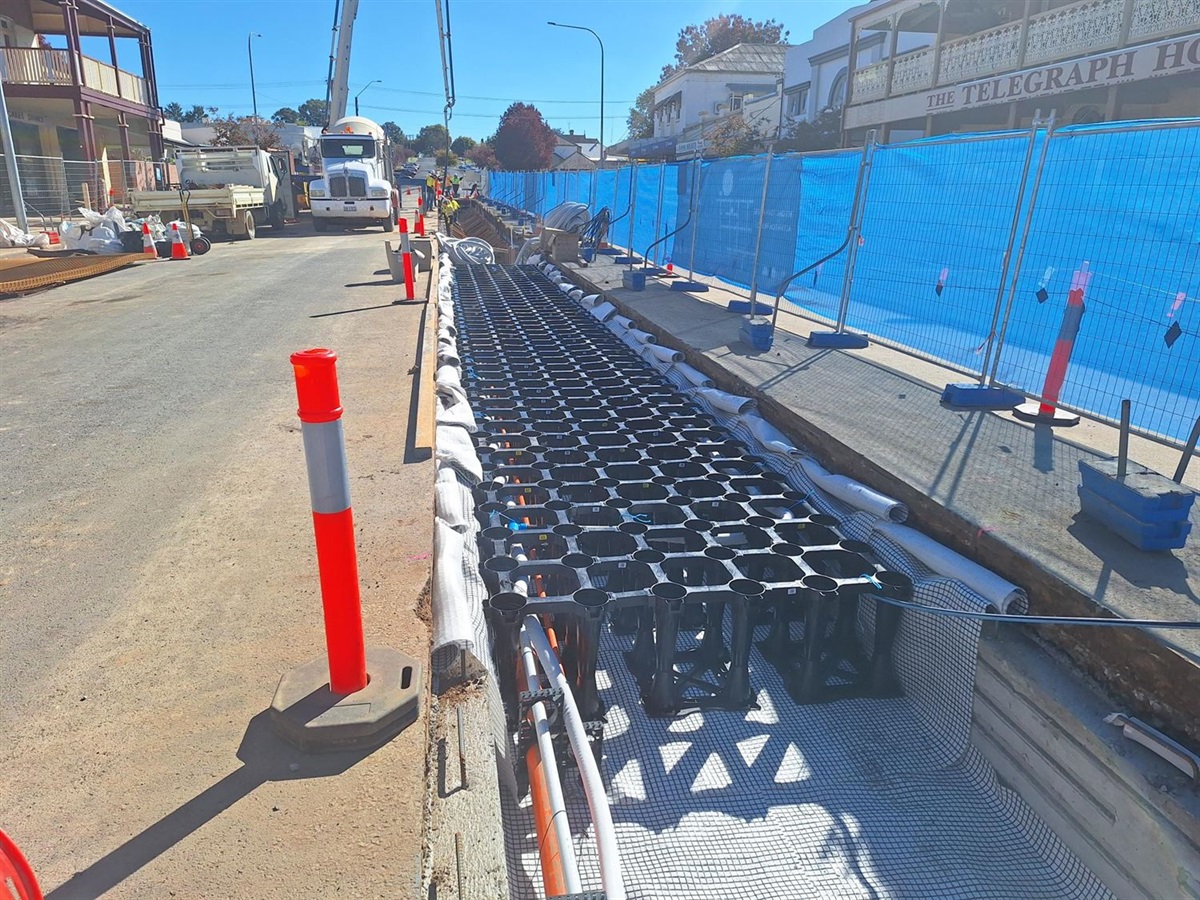AstraZeneca and MSD’s Lynparza (olaparib) has been approved in China for the maintenance treatment of adult patients with advanced epithelial ovarian, fallopian tube or primary peritoneal cancer who are in complete or partial response to 1st-line platinum-based chemotherapy in combination with bevacizumab, and whose cancer is associated with homologous recombination deficiency (HRD)-positive status.
In China, ovarian cancer is the third most common gynaecologic cancer, with a five-year survival rate of approximately 39%, largely because more than 70% of women are diagnosed with advanced disease (Stage III or IV).1,2 In 2020, there were over 55,000 new cases of ovarian cancer in China.3
The approval by China’s National Medical Products Administration was based on an HRD-positive subgroup exploratory analysis of the PAOLA-1 Phase III trial which showed Lynparza plus bevacizumab demonstrated a substantial progression-free survival (PFS) improvement versus bevacizumab alone for patients with HRD-positive advanced ovarian cancer. During European Society for Medical Oncology Congress (ESMO) 2022, the final overall survival (OS) results were presented from the PAOLA-1 Phase III trial demonstrating that Lynparza plus bevacizumab provided a clinically meaningful improvement in overall survival in HRD-positive advanced ovarian cancer.
Professor Ding Ma, Member of the Chinese Academy of Engineering, said: “Ovarian cancer has the highest fatality rate among gynaecologic cancers in China. The emergence of PARP inhibitors and their application in the 1st-line treatment of ovarian cancer could help patients delay disease progression and achieve long-term remission. In the PAOLA-1 trial, the combination of olaparib and bevacizumab demonstrated clinically meaningful improvements in overall survival. This approval provides HRD-positive patients with a new option for 1st-line maintenance therapy.”
Professor Beihua Kong, Chairman of the Gynaecological Oncology Branch of the Chinese Medical Association, said: “Ovarian cancer has entered the era of precision medicine, and HRD detection (including BRCA1/2 mutations) has important clinical value for newly diagnosed patients with advanced ovarian cancer, to help guide first-line treatment decisions. The approval of the combination of olaparib and bevacizumab brings a clinically meaningful survival benefit to HRD-positive patients, and further reflects the importance of a precision approach to help guide treatment decisions in ovarian cancer.”
Dave Fredrickson, Executive Vice President, Oncology Business Unit, AstraZeneca, said: “The maintenance treatment of Lynparza in combination with bevacizumab has shown to both improve progression-free survival and provide a clinically meaningful improvement in overall survival in patients with HRD-positive advanced ovarian cancer following response to platinum-based chemotherapy. I am thrilled we can now bring this targeted treatment option to these patients in China.”
Dr Eliav Barr, Senior Vice President, Head of Global Clinical Development and Chief Medical Officer, MSD Research Laboratories, said: “This approval is an important milestone for patients with newly diagnosed advanced ovarian cancer in China and underscores the critical importance of HRD testing for all women with advanced ovarian cancer at the point of diagnosis.”
The initial results from the PAOLA-1 Phase III trial showed that Lynparza plus bevacizumab reduced the risk of disease progression or death by 67% in the subgroup of patients with HRD-positive advanced ovarian cancer (based on a hazard ratio [HR] of 0.33; 95% confidence interval [CI] 0.25-0.45 from the pre-specified exploratory analysis). Lynparza plus bevacizumab also improved PFS to a median of 46.8 versus 17.6 months with bevacizumab alone in this patient population. The primary endpoint in the intent-to-treat population was a statistically significant and clinically meaningful improvement in PFS. The data from the PAOLA-1 trial was published in The New England Journal of Medicine in 2019.
Further results from the five-year analysis of the PAOLA-1 trial recently presented at the ESMO 2022 showed Lynparza plus bevacizumab increased median overall survival to 56.5 months versus 51.6 months with bevacizumab alone, in patients with newly diagnosed advanced ovarian cancer irrespective of HRD status. This increase was not statistically significant. In HRD-positive patients, Lynparza plus bevacizumab provided a clinically meaningful improvement in overall survival, reducing the risk of death by 38% versus bevacizumab (based on a HR of 0.62; 95% CI 0.45-0.85 from the pre-specified exploratory sub-group analysis) despite PAOLA-1 having 30% Stage IV patients. The safety and tolerability profile of Lynparza in this trial was in line with that observed in prior clinical trials, with no new safety signals.
Lynparza in combination with bevacizumab is approved in the US, and several other countries as a 1st-line maintenance treatment for patients with HRD-positive advanced ovarian cancer and is currently under regulatory review in other countries around the world. In China, Lynparza is approved for the treatment of BRCA-mutated metastatic castration-resistant prostate cancer as well as a 1st-line maintenance therapy in BRCA-mutated advanced ovarian cancer.
Notes
Ovarian cancer
Ovarian cancer is the eighth most common cancer in women worldwide.4 There were more than 313,000 new cases of ovarian cancer in 2020, and over 207,000 deaths. The 5-year survival rate of newly diagnosed advanced ovarian cancer patients has typically been 30-50%.5,6 Roughly half of women with advanced ovarian cancer have homologous recombination deficiency (HRD)-positive tumours including those with a BRCA mutation and up to one in five women have a BRCA mutation.7-9 The primary aim of 1st-line treatment is to delay disease progression for as long as possible with the intent to achieve long-term remission.10-12
PAOLA-1
PAOLA-1 is a double-blinded Phase III trial testing the efficacy and safety of Lynparza added to standard of care bevacizumab versus bevacizumab alone, as a 1st-line maintenance treatment for newly diagnosed advanced FIGO Stage III-IV high-grade serous or endometroid ovarian, fallopian tube, or peritoneal cancer patients who had a complete or partial response to 1st-line treatment with platinum-based chemotherapy and bevacizumab. AstraZeneca and MSD announced in August 2019 that the trial met its primary endpoint of PFS in the overall trial population.
The primary analysis of the PAOLA-1 Phase III trial showed that Lynparza, in combination with bevacizumab maintenance treatment, reduced the risk of disease progression or death by 67% (based on a HR of 0.33; 95% CI 0.25-0.45) in the subgroup of patients with HRD-positive advanced ovarian cancer. The addition of Lynparza improved PFS to a median of 46.8 months versus 17.6 with bevacizumab alone in this patient population.
Updated results from the five-year analysis of the PAOLA-1 Phase III trial demonstrate that in a pre-specified exploratory subgroup analysis of HRD-positive patients, Lynparza plus bevacizumab provided a clinically meaningful improvement in overall survival, reducing the risk of death by 38% versus bevacizumab (based on a HR of 0.62; 95% CI 0.45-0.85). In addition, 65.5% of patients treated with Lynparza plus bevacizumab were still alive at five years versus 48.4% of those treated with bevacizumab alone. Lynparza plus bevacizumab also improved median PFS to almost four years (46.8 months) versus 17.6 months with bevacizumab plus placebo, and 46.1% of patients treated with Lynparza plus bevacizumab remain progression free at five years versus 19.2% of patients treated with bevacizumab alone.
PAOLA-1 is an ENGOT (European Network of Gynaecological Oncological Trial groups) trial, sponsored by ARCAGY Research (Association de Recherche sur les CAncers dont GYnécologiques) on behalf of GINECO (Groupe d’Investigateurs National des Etudes des Cancers Ovariens et du sein), lead group for the PAOLA-1 trial. ARCAGY-GINECO is an academic group specialising in clinical and translational research in patients’ gynaecological cancers, labelled by the French National Cancer Institute (INCa), and a member of the GCIG (Gynecologic Cancer InterGroup).
Homologous recombination deficiency
HRD, which defines a subgroup of ovarian cancer, encompasses a wide range of genetic abnormalities, including BRCA mutations and beyond. As with BRCA gene mutations, HRD interferes with normal cell DNA repair mechanisms and confers sensitivity to PARP inhibitors including Lynparza.13
Lynparza
Lynparza (olaparib) is a 1st-in-class PARP inhibitor and the first targeted treatment to block DNA damage response (DDR) in cells/tumours harbouring a deficiency in homologous recombination repair (HRR), such as mutations in BRCA1 and/or BRCA2. Inhibition of PARP with Lynparza leads to the trapping of PARP bound to DNA single-strand breaks, stalling of replication forks, their collapse and the generation of DNA double-strand breaks and cancer cell death. Lynparza is being tested in a range of PARP-dependent tumour types with defects and dependencies in the DDR pathway.
Lynparza is currently approved in a number of countries across multiple tumour types including maintenance treatment of platinum-sensitive relapsed ovarian cancer and as both monotherapy and in combination with bevacizumab for the 1st-line maintenance treatment of BRCA-mutated (BRCAm) and HRD-positive advanced ovarian cancer, respectively; for gBRCAm, HER2-negative metastatic breast cancer (in the EU and Japan this includes locally advanced breast cancer); for gBRCAm, HER2-negative high-risk early breast cancer (in Japan this includes all BRCAm HER2-negative high-risk early breast cancer); for gBRCAm metastatic pancreatic cancer; and HRR gene-mutated metastatic castration-resistant prostate cancer (BRCAm only in the EU and Japan). In China, Lynparza is approved for the treatment of BRCA-mutated metastatic castration-resistant prostate cancer as well as a 1st-line maintenance therapy in BRCA-mutated advanced ovarian cancer.
Lynparza, which is being jointly developed and commercialised by AstraZeneca and MSD, has been used to treat over 75,000 patients worldwide. Lynparza has a broad clinical trial development programme, and AstraZeneca and MSD are working together to understand how it may affect multiple PARP-dependent tumours as a monotherapy and in combination across multiple cancer types. Lynparza is the foundation of AstraZeneca’s industry-leading portfolio of potential new medicines targeting DDR mechanisms in cancer cells.
The AstraZeneca and MSD strategic oncology collaboration
In July 2017, AstraZeneca and Merck & Co., Inc., Kenilworth, NJ, US, known as MSD outside the US and Canada, announced a global strategic oncology collaboration to co-develop and co-commercialise Lynparza, the world’s first PARP inhibitor, and Koselugo (selumetinib), a MEK inhibitor, for multiple cancer types. Working together, the companies will develop Lynparza and Koselugo in combination with other potential new medicines and as monotherapies. Independently, the companies will develop Lynparza and Koselugo in combination with their respective PD-L1 and PD-1 medicines.
AstraZeneca in oncology
AstraZeneca is leading a revolution in oncology with the ambition to provide cures for cancer in every form, following the science to understand cancer and all its complexities to discover, develop and deliver life-changing medicines to patients.
The Company’s focus is on some of the most challenging cancers. It is through persistent innovation that AstraZeneca has built one of the most diverse portfolios and pipelines in the industry, with the potential to catalyse changes in the practice of medicine and transform the patient experience.
By harnessing the power of six scientific platforms – Immuno-Oncology, Tumour Drivers and Resistance, DNA Damage Response, Antibody Drug Conjugates, Epigenetics, and Cell Therapies – and by championing the development of personalised combinations, AstraZeneca has the vision to redefine cancer treatment and, one day, eliminate cancer as a cause of death.
AstraZeneca
AstraZeneca (LSE/STO/Nasdaq: AZN) is a global, science-led biopharmaceutical company that focuses on the discovery, development and commercialisation of prescription medicines, primarily for the treatment of diseases in three therapy areas – Oncology, Cardiovascular, Renal & Metabolism, and Respiratory & Immunology. Based in Cambridge, UK, AstraZeneca operates in over 100 countries and its innovative medicines are used by millions of patients worldwide. Please visit astrazeneca.com and follow the Company on Twitter @AstraZeneca.








